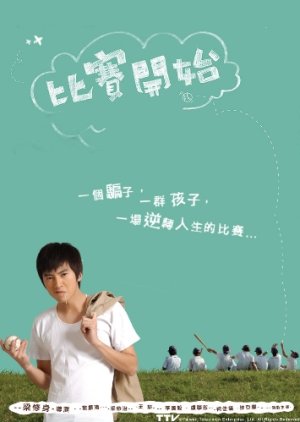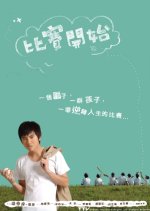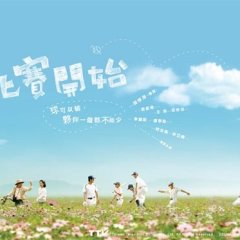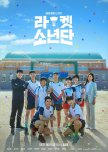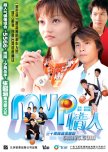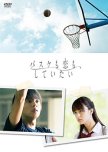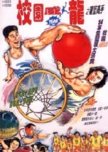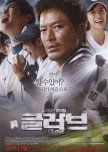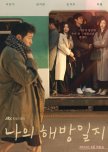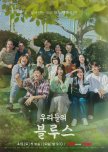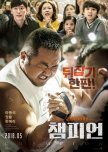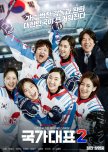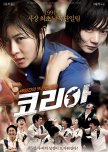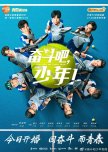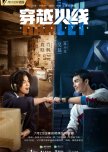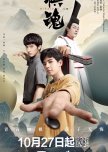 Ask MDL: Sports
Ask MDL: Sports A soldier deserter hides out in a little village in Hualien and lies his way into becoming the town's little league baseball coach. Edit Translation
- English
- Español
- magyar / magyar nyelv
- dansk
- Native Title: 比賽開始
- Also Known As: Bi Sai Kai Shi , Game Winning Hit , 比赛开始
- Genres: Sports
Cast & Credits
- Lego Lee Main Role
- Ko Chia YenLin Ming Yu / Xiao WuMain Role
- Tsai Chen NanChen Hong Kai (Bu Wa)Main Role
- Wang ChuanFu MaMain Role
- Afalean LuChen Hong KaiSupport Role
- Wu Ting ChienWang Dong ChuanSupport Role
Reviews

"If you don't make a choice, how are you going to continue your life?"
I enjoyed this drama. Though some parts were a bit slow, the overall message and themes of the drama really touched me, and I was already missing all of the characters (and the main theme song) by the last episode.First and foremost, a disclaimer. This is a drama about baseball. Not every scene has baseball in it, but that sport that means so much to Jiqi, the town in which the story is set, is the core that both consumes and propels these characters on. So, if you’re not a big fan of baseball, maybe mentally prepare yourself or even pass on this one, because there are large portions where they are just literally playing baseball/training for baseball games. (I am a huge fan of baseball myself, particularly youth baseball — I watch the Williamsport Little League World Series every year — so this was right up my alley).
The story is basically about how to deal with the tides of life. This is a very realistic drama, set in a very tough time in Taiwanese history (it starts around 1968 and spans about five or more years, during the peak of White Terror). It has its light-hearted moments, but there are also some really harsh and (surprisingly) terrible things these characters go through.
But that’s the point of the story. Its message is not “If you try hard enough, everything’s going to be all right”; it’s not that idealistic. Rather, it’s more like “Hard things are going to happen and you are going to fall, but you can pick yourself back up and you can try again; allow the people around you to be your strength as you find a way to stand on your own again” (a really long catch-phrase).
The message is also about choices — the choices we make, however small, that affect our whole lives. The choices we have to live with, and how, even if we can’t reverse time, we can make up for the mistaken choices we’ve made.
The story is divided into two parts — childhood and young adulthood (or young adulthood and adulthood for the older characters). The main character (though it could be argued that everyone in the story is a main character, as almost all of them get their own storylines) is Li Qi Ming, played by Lego Lee. Qi Ming starts the story much, much different from how he ends it, and it is through his eyes that we experience the bulk of the fear that comes with living in the White Terror era. Through him, though, we also experience what it’s like to devote yourself wholeheartedly to something you love despite any of the outward criticisms or inward hesitation. To find a family when you can't face your own; how to own up to your actions and accept the consequences of your decisions without giving into cynicism and giving up on life itself. Qi Ming loves baseball, and it is through this love that he can survive all of the terrible things that befall him.
The greatest strength of this drama is the relationships. The relationship between the group of boys (and one girl) on the baseball team is really endearing, in both their childhood and their youth. These kids come from a really tough background and don’t even have money to buy real equipment; however, what they lack in material, they make up for in heart and work ethic. What I like most about their storylines is that although they don’t always get along, and though they sometimes go down the wrong path, when someone wants to come back and make amends, they are always welcomed with open arms and understanding. They are such a strong group of individuals who learn how to push back against the negative stereotypes others have about them (most are of aboriginal origin) and become the best versions of themselves.
The relationship between the adults is an interesting progression as well, and without going too much into it, the direction the relationships go is definitely unexpected, especially for an (idol) drama. They definitely went for the extremely realistic route in the very, very slight romance storylines they have here.
Of course, not everything was great about this drama. There is a looooot of wooden, not-so-great acting performances, by the children, the young adults, and the adults. It’s easier to say who stood out as a good performance than give a list of the not-so-good. Of course, Lego Lee was excellent as Qi Ming; Alice Ke did a good job of a young girl unsure of what her next step should be in life; both of Lala’s actors were good (childhood and young adult actor Edison Wang); and Lin Ya Lin as Wei Ting really grew on me by the end. The others had their moments and surprised me with the depth of their acting at times, but more often than not, it, unfortunately, fell pretty flat. (All those stiff line deliveries! And sometimes their voices sounded like a little kid's when they were supposed to be practically adults!)
If you can ignore/get over that, though, the story is a rich experience that’s outside of the box as far as your typical drama goes. I recommend it if you’re looking for something inspirational and healing, while at the same time giving a good insight into Taiwan at a very turbulent time in history.
Was this review helpful to you?

